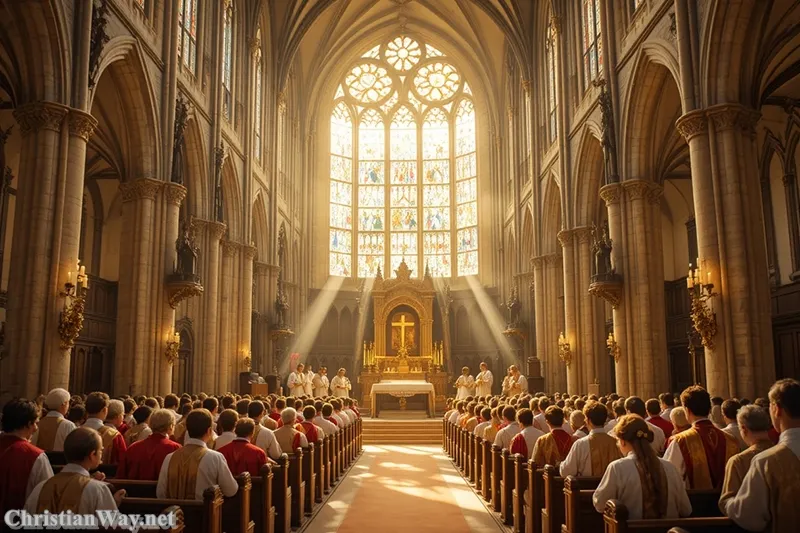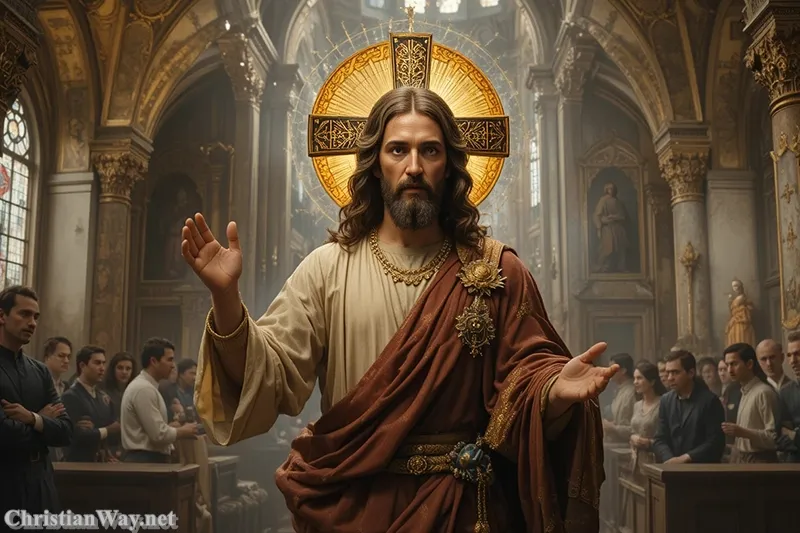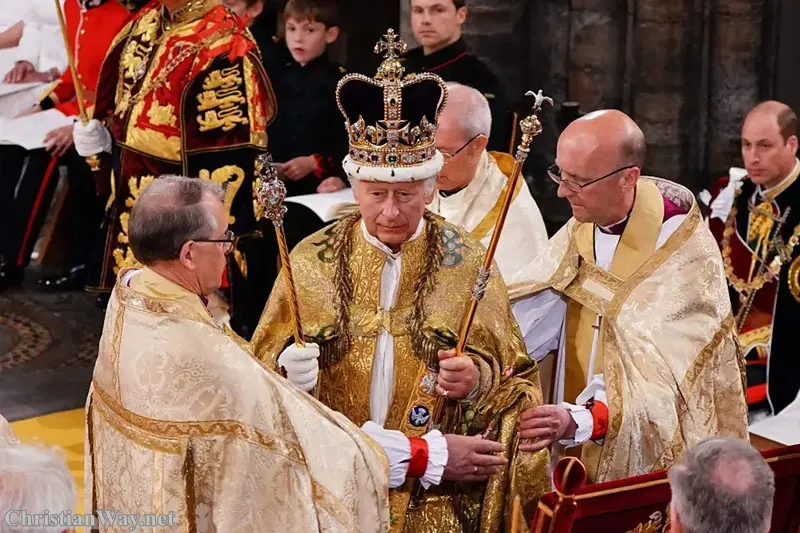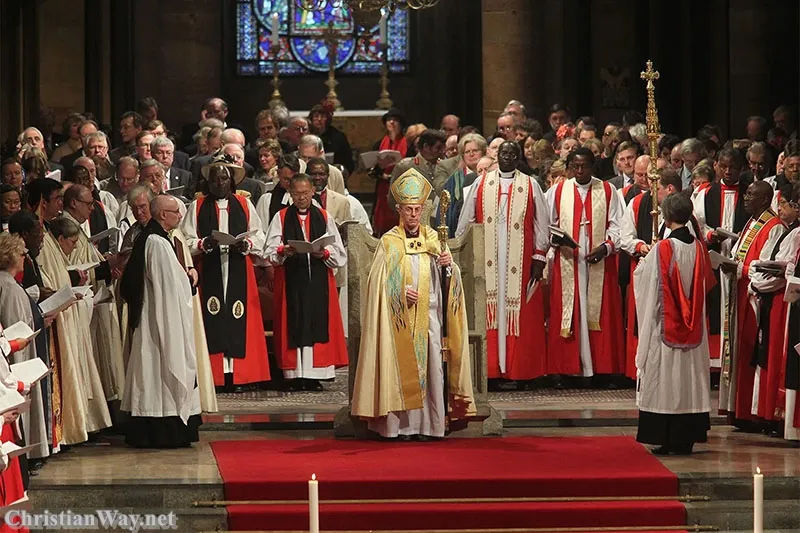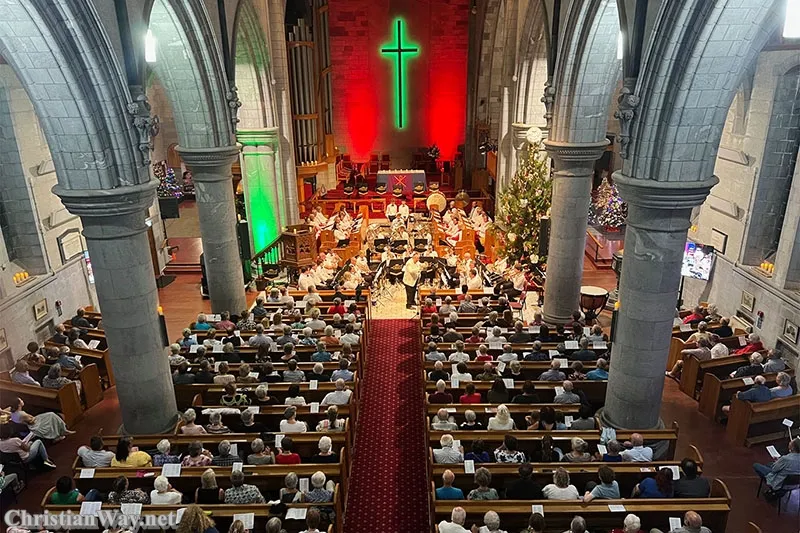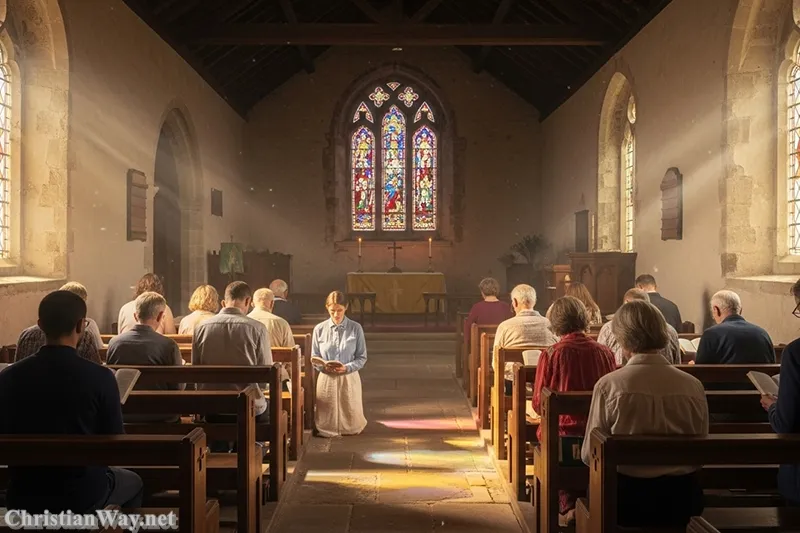Every generation of believers has stood in awe before the mystery of the Holy Trinity — one God in three Persons: Father, Son, and Holy Spirit. This mystery is not an abstract doctrine for theologians alone, but the living truth of God’s being and love. In the Anglican tradition, the Trinity stands at the very center of faith, worship, and prayer. Every Sunday, Anglicans across the world proclaim the ancient words of the Nicene Creed, confessing that “we believe in one God.” Yet within that unity, they encounter a communion of divine love — eternal, relational, and self-giving.
Dear friends in Christ, this truth may seem too vast for the human mind to grasp, and indeed, it is. The Trinity cannot be fully explained; it can only be adored. It is the mystery of love that calls us to worship, to wonder, and to share in the very life of God. In this reflection, we will journey through the Anglican understanding of the Trinity — not to solve the mystery, but to dwell within it. We will listen to Scripture, to the wisdom of the early Church, and to the quiet voice of the Spirit who continues to teach the Church today.
The Heart of Anglican Faith: One God in Three Persons
The Anglican tradition is deeply rooted in the historic creeds of the undivided Church — the Apostles’, Nicene, and Athanasian Creeds. Each of these creeds affirms the same central truth: that God is one in essence and three in Personhood. This faith is not a later invention but a reflection of what Scripture reveals about the living God who acts, speaks, and loves.
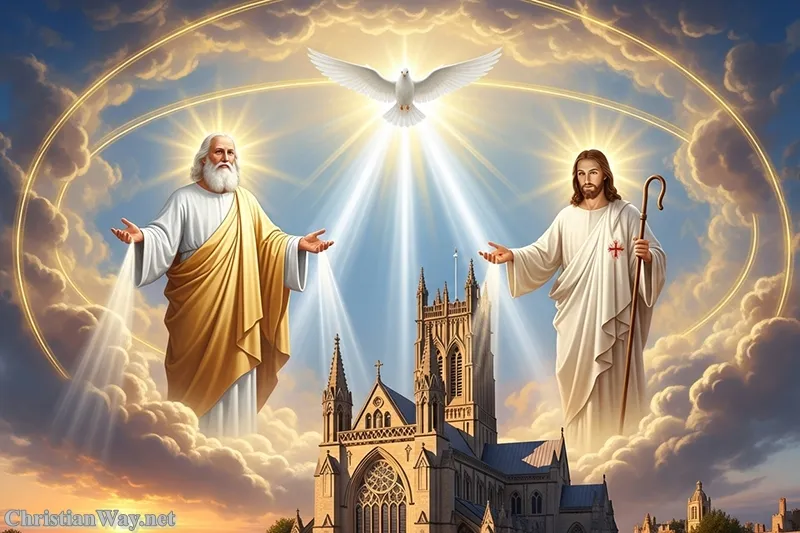
In the Book of Common Prayer, every service begins and ends in the name of the Trinity: “In the Name of the Father, and of the Son, and of the Holy Spirit. Amen.” This Trinitarian invocation is not a mere formality. It reminds the faithful that every prayer, every sacrament, and every act of love begins and ends in the life of the triune God.
A Faith Formed by Scripture
The Anglican Church holds the Holy Scriptures as the supreme authority in matters of faith. From Genesis to Revelation, the presence of the Trinity is woven like a golden thread through salvation history.
In Genesis 1:26, we hear God say, “Let us make man in our image.” Already, a divine dialogue echoes within the being of God — a hint of the relational nature of the Creator. In the fullness of time, the mystery becomes clearer in the life and teaching of Jesus Christ, the eternal Son. When He commands His disciples, “Go therefore and make disciples of all nations, baptizing them in the name of the Father and of the Son and of the Holy Spirit” (Matthew 28:19), He reveals not three gods, but one divine Name, shared among three Persons.
The New Testament resounds with this truth. The Father sends the Son; the Son reveals the Father; the Holy Spirit proceeds from both, leading the Church into all truth (John 14:26, 16:13–15). St. Paul’s blessing captures it perfectly: “The grace of the Lord Jesus Christ, the love of God, and the fellowship of the Holy Spirit be with you all.” (2 Corinthians 13:14). This threefold benediction has become one of the most beloved in Anglican worship — a constant reminder that every blessing of grace flows from the life of the Triune God.
The Trinitarian Shape of Anglican Worship
To understand Anglican theology, one must look first at its worship. Lex orandi, lex credendi — “the law of prayer is the law of belief.” In other words, how the Church prays reveals what she believes.
The Book of Common Prayer and Trinitarian Prayer
From its earliest editions in the sixteenth century to its many contemporary forms today, the Book of Common Prayer is profoundly Trinitarian. The prayers of morning and evening begin and end in the name of the Trinity. The collects — those concise and poetic prayers that shape Anglican devotion — often invoke one Person of the Trinity while acknowledging the unity of all three.
For instance, the Collect for Trinity Sunday reads:
Almighty and everlasting God, you have given to us your servants grace, by the confession of a true faith, to acknowledge the glory of the eternal Trinity, and in the power of your divine Majesty to worship the Unity: keep us steadfast in this faith and evermore defend us from all adversities; through Jesus Christ our Lord.
This single prayer encapsulates the Anglican spirit — worship that confesses mystery, adores unity, and seeks the grace to live in faith.
Trinitarian Worship in the Liturgy
Every Eucharist, every baptism, every confirmation, and every blessing in the Anglican Church is marked by the Trinity. During the Holy Communion, the Eucharistic Prayer praises the Father, recalls the saving work of the Son, and invokes the sanctifying presence of the Holy Spirit. In baptism, the priest pours water three times — once for each divine Person — symbolizing the believer’s rebirth into the life of the triune God.
The Doxology, sung joyfully at the close of many hymns and prayers — “Praise Father, Son, and Holy Ghost” — is not a mere formula. It is a song of eternal gratitude for the divine life shared with us. Through such worship, Anglicans are constantly drawn into the dynamic circle of divine love, where each Person of the Trinity eternally gives and receives love.
Theological Foundations: Unity and Distinction
Anglican theology, following the great ecumenical councils of Nicaea (325) and Constantinople (381), teaches that God is one in substance (ousia) and three in Persons (hypostases). The Father is not the Son; the Son is not the Spirit; and the Spirit is not the Father. Yet all share one divine essence — coequal, coeternal, and consubstantial.
This unity amid distinction reflects perfect love. God is not solitary but relational. As St. Augustine beautifully described, within the Trinity there is the Lover (the Father), the Beloved (the Son), and the Love itself (the Holy Spirit). In this eternal exchange of love, there is no hierarchy, no competition, no division — only perfect communion.
The Trinity and Salvation
In Anglican theology, salvation is entirely Trinitarian. The Father creates and calls; the Son redeems and reconciles; the Holy Spirit sanctifies and sustains. This is not a sequence of separate acts but one movement of divine grace. When the Son becomes incarnate, He reveals the face of the Father. When He ascends, He sends the Spirit to dwell within believers, uniting them to God’s life.
St. Peter writes, “Through Him we have access by one Spirit to the Father” (Ephesians 2:18). This passage beautifully describes the Trinitarian structure of salvation: by Christ, in the Spirit, to the Father. The entire Christian life unfolds within this divine pattern — a continual returning to the Source of love.
The Trinity and the Life of the Believer
Belief in the Trinity is not an abstract exercise in theology; it shapes the very rhythm of Christian life. To live as a Christian is to live within the love of the Father, through the grace of the Son, and in the fellowship of the Holy Spirit.
Prayer as Participation in Divine Life
When an Anglican prays, it is the Spirit who moves within the heart, the Son who intercedes before the Father, and the Father who receives every prayer in love. The daily offices — Morning and Evening Prayer — guide believers to live in constant communion with the Triune God. Each time the Gloria Patri is recited — “Glory be to the Father, and to the Son, and to the Holy Ghost; as it was in the beginning, is now, and ever shall be” — the soul is lifted into the eternal life of God.
Community as a Reflection of the Trinity
Anglican theology also emphasizes the communal nature of the Church, seeing in it a reflection of the divine communion of the Trinity. Just as the three Persons of God exist in perfect unity and mutual love, so the Church is called to embody unity amid diversity. This truth shapes Anglicanism’s vision of a “via media” — a middle way that seeks balance and harmony, avoiding extremes while holding fast to truth and charity.
The Trinity in Anglican Tradition and Thought
Through the centuries, Anglican theologians have contemplated the Trinity with reverence and creativity.
Richard Hooker and the Harmony of Divine Order
Richard Hooker, one of Anglicanism’s greatest theologians, described the divine order as a reflection of Trinitarian harmony. For Hooker, the laws that govern creation and grace alike flow from the eternal wisdom of the Triune God. To live in obedience to God’s will is to participate in the life of this divine order — to dwell in peace with the One whose being is love itself.
Lancelot Andrewes and the Prayerful Contemplation of the Trinity
Bishop Lancelot Andrewes, a master of Anglican devotion, prayed in the language of awe and intimacy:
“Three Persons, one God; one God, three Persons: the same substance, the same Godhead, the same eternity, the same power, the same glory.”
His writings show that for Anglicans, theology and prayer are never separated. The contemplation of the Trinity is not a speculative exercise but a doorway into adoration.
The Modern Anglican Witness
In modern Anglicanism, the Trinity continues to shape the Church’s understanding of mission and identity. The Lambeth Conferences, gatherings of bishops from around the world, often affirm that the Church’s mission flows from the very being of the Triune God — the Missio Dei, or “mission of God.” As the Father sends the Son, and the Son sends the Spirit, so the Spirit sends the Church into the world to bear witness to divine love.
Thus, every act of service, every word of reconciliation, and every work of justice in the Anglican Communion is understood as participation in the eternal outpouring of God’s love.
The Mystery That Invites Us
To stand before the Trinity is to stand before mystery. Anglicanism does not seek to reduce that mystery to human logic but to receive it with faith and worship. The Trinity is not a puzzle to be solved but a reality to be entered — a communion that embraces us.
In our baptism, we were brought into this mystery; in our prayers, we dwell within it; and in the Eucharist, we taste its fullness. The triune God is not distant or abstract — He is the love that created us, redeemed us, and now abides in us.
When we make the sign of the cross and say, “In the name of the Father, and of the Son, and of the Holy Spirit,” we proclaim our belonging to that eternal love.
Reflect and Pray
The Trinity is the heartbeat of Christian faith — the mystery of divine love that calls us into communion. The Anglican tradition, in its quiet beauty and theological depth, invites us not merely to speak of this mystery, but to live within it.
Let us pray:
Eternal Father, source of all being,
Jesus Christ, your living Word,
Holy Spirit, breath of love and truth —
Draw us into your divine life,
That we may dwell in unity and peace,
And reflect your perfect love in the world.
Through the same Christ our Lord. Amen.
May the grace of the Lord Jesus Christ,
the love of God,
and the fellowship of the Holy Spirit
be with you always.
— Fr. John Matthew, for Christian Way
